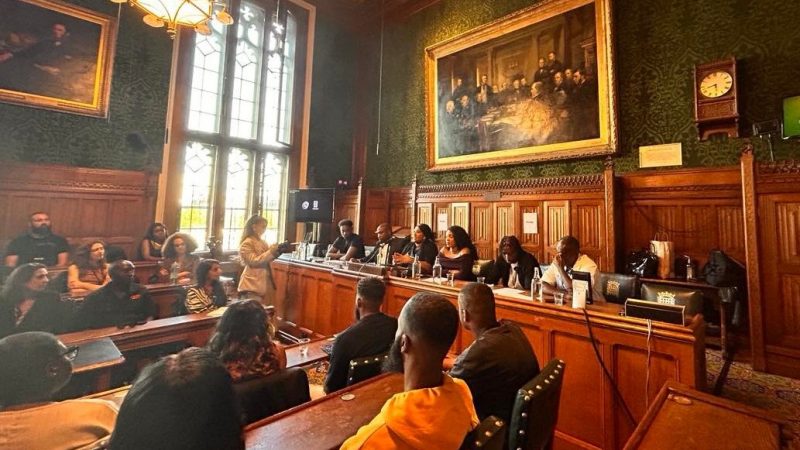‘Politicians have a responsibility to end this issue.’

A new British film was released this week that delves deep into the bleak reality of Britain’s county lines problems, whereby criminal gangs, using coercion, intimidation, violence, and grooming, use children, young people, and other vulnerable individuals, to prepare, store, deliver or sell drugs.
‘Trapping’ is produced by filmmakers Femi Oyeniran and Nicky ‘Slimting’ Walker and stars MOBO-winning drill rapper, Abra Cadabra.
Ahead of the film’s release, a county lines debate and Q&A session took place at the Houses of Parliament to raise awareness of the topics featured in the film, namely gang violence, drug use and structural inequality, and to discuss strategies at tackling this growing form of criminal exploitation.
Labour MP for Streatham Bell Riberio-Addy led the panel, which featured L’Myah Sherae, founder of the racial, justice and equality group Enact Equality, activist and founder of Power the Flight Ben Lindsay, and youth coach and filmmaker Amani Simpson. Femi Oyeniran and Abra Cadabra were also on the panel.
The discussion began with the speakers informing the packed room in the Houses of Parliament, of some alarming statistics involving county lines in Britain.
Ribeiro-Addy said: “We are seeing hundreds of extremely vulnerable children who are at risk of being recruited by criminal gangs thrown out of schools in county lines hotspots.”
46,000 children in England are believed to be involved in gangs, according to figures from the Children’s Society. In London alone, 4,000 teenagers are being criminally exploited. Such numbers however are likely to be much higher.
Youngsters brought up in poverty, those from minority backgrounds, and children being excluded from school, are especially at risk of gang exploitation.
Child poverty is on the rise in Britain, with data showing the number of UK children in food poverty has nearly doubled in the last year to almost 4 million.
Recent figures obtained by BBC Radio 4’s File on 4 programme revealed that between 2021 and 2023, there were over 1,200 exclusions and suspensions of children assessed by social services to be grooming targets in England’s four county lines ‘hotspots,’ – London, the West Midlands, Greater Manchester and Merseyside.
The Trapping filmmakers and collaborators warn how increasing child poverty has made the situation worse, as has the growing number of children being excluded from and missing school.
“There was a Prison’s Commissioners report which actually said, if you exclude a child from school, you might as well give them a time and date to report for sentencing’, because it’s a clear pipeline to ending up in prison…. We already know that pupil referral units for children who have been excluded are targeted. Special education provisions are also massively targeted,” said Bell Riberio-Addy.
The panel also touched on the issue of decriminalising drugs in Britain, pointing to Portugal, which relaxed its drugs laws more than 20 years ago. Since it decriminalised drugs in 2001, Portugal has seen a significant drop in drug-related crime, HIV infection, and overdoses.
Noting how years of austerity and cuts to youth services have exacerbated the issues, Trapping’s collaborators are calling on the government to launch a creative grants scheme which would put financial capital in the hands of young people who need it the most.
“Politicians have a responsibility to end this issue,” said L’Myah Sherae.
“In order to protect the next generation, they have to do more and introduce laws to really think about prevention rather than a hard line on drug use. If you think about this as a safeguarding issue, this is about protecting children.”
Trapping was released on The Drop, a new streaming platform which aims to serve underrepresented and minority audiences and promote independent and upcoming British talent.
Gabrielle Pickard-Whitehead is a contributing editor to Left Foot Forward
Left Foot Forward doesn't have the backing of big business or billionaires. We rely on the kind and generous support of ordinary people like you.
You can support hard-hitting journalism that holds the right to account, provides a forum for debate among progressives, and covers the stories the rest of the media ignore. Donate today.



